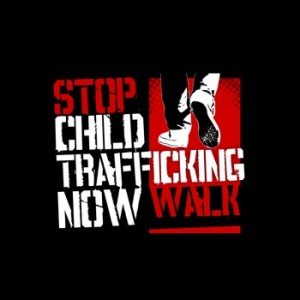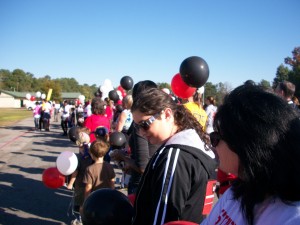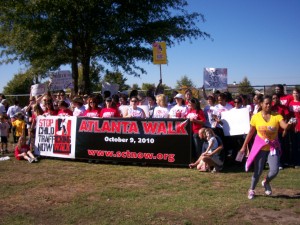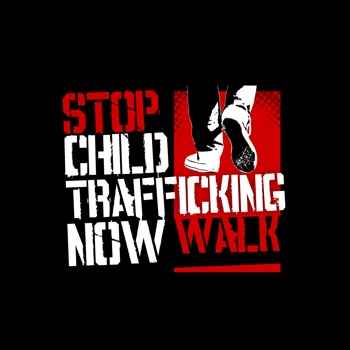 In less than two months, on July 1, a human trafficking law that toughens the penalty for sex traffickers and seeks to improve outcomes for victims will officially become law in Georgia.
In less than two months, on July 1, a human trafficking law that toughens the penalty for sex traffickers and seeks to improve outcomes for victims will officially become law in Georgia.
Georgia Gov. Nathan Deal signed HB 200 into law earlier this month. Advocates are praising the measure for many of its key provisions, including that it treats those in sexual servitude as victims; not criminals, allows victims to provide “an affirmative defense” when coming forward and for penalties that allow the state to seize any real or personal property used or purchased by a convicted trafficker. The fact that law enforcement agencies will also receive training on ways to identify and interact with human trafficking victims is also being touted as important progress.
Here’s what Renee Kempton, the Atlanta Ambassador for the national non-profit Stop Child Trafficking Now (SCTN) had to say about the measure. The organization funds and mobilizes investigative teams that gather information used to convict child predators in the United States and abroad.
JJIE.org: How big of an issue would you say sex trafficking is in metro Atlanta?

Kempton
Kempton: This is a huge issue that a lot of people are unaware of. Atlanta is one of the top cities in the country for sex trafficking because of the airport. A lot of businessmen fly into Atlanta just for sex with young girls. They fly in and then they fly back out. According to a report by the Governor’s Officer of Children & Families, approximately 490 adolescent girls ages 12-14 get trafficked in the state of Georgia per month. The majority of them -- about 360 – are trafficked each month in Atlanta alone. This is happening in our city every day.
JJIE.org: What do you think about the passage of HB 200?
Kempton: Honestly my first reaction is why did it take so long for us to pass something like this in Georgia? This bill seems to be a huge steppingstone. It’s definitely a starting point. The bill has some teeth to it; it seems to have some power to divert people away from committing this heinous crime. I hope we can get to a point in Georgia where the penalties can get even harsher.
JJIE.org: This bill that passed was built upon the foundation established by a failed measure introduced last year by Sen. Renee Unterman. She came under fire by some conservative groups in the 2010 session for her measure that pushed for children 16 and under to be treated as victims and not criminals in prostitution cases. What do you think about the criticism she received and the issue in general?
Kempton: At the age of 16 you can barely drive a car in Georgia. If a boy or girl can be accused of rape or molestation for having intercourse with a peer in this state, how can we turn around and say that same child should suddenly be held responsible when they’re being pimped by an adult? I think it’s absolutely absurd to think that a child under the age of 16 should not be considered a victim in these cases. Children should be treated as such.

The 2010 SCTN Walk fundraiser.
JJIE.org: What do you like most about HB 200?
Kempton: I like the fact that they (authorities) can seize property too. I also think it’s good that they treat children as victims. Arresting girls who are 16 and under for prostitution and putting them in prison is not right. I also like the fact that they’re training law enforcement on how to spot trafficking victims, that is so important. Most girls are not being held voluntarily; they’re being given food or something else that they need for survival. It’s manipulation and it’s wrong.
JJIE.org: What would you change about HB 200, if anything?
Kempton: Anyone who sells a child for sex needs to have more than five years in prison. I would start at 20 years in prison minimum. Five years is a slap on the wrist, but it’s better than nothing. I do like the fact that the fine goes up considerably if the victim is under the age of 16. Most girls are trafficked between the ages of 10-13. This means that this law will be reaching most of the victims. The fact that they can get 10 to 30 years and a $100,000 fine is very good. Hopefully that will be a deterrent. It gives law enforcement something to work with. This gives officers and investigators the power to do something about this.
JJIE.org: You seem to like a lot about the bill.
Kempton: Yes. The fact that the victims can claim an affirmative defense when they come forward is huge. A lot of girls are scared to come forward and this creates a safe haven for them to do so. This also helps deter the Johns and pimps because they all thrive on fear. They get her to think she has no one but him. The way this law is written, it provides a safe place for girls to share information with authorities because they are usually controlled by fear.
JJIE.org: How will this bill benefit SCTN efforts?
Kempton: This plays perfectly into our strategy. We go after the pimps and Johns and shut down the demand side. Without laws to back us up that gets increasingly difficult. This law gives us a great jumping board. We use retired police, military and Navy Seals to track down these guys online; our team members are the elite and they know what they’re doing. Laws like this just makes their work more worthwhile.
JJIE.org: What is it that you want people to really know about sex trafficking?

SCTN volunteers at the 2010 walk fundraiser.
Kempton: This is one of the greatest human rights violations of our time. It basically equates to modern day slavery. Selling a child under age 16 for sex is slavery.
JJIE.org: Overall how do you feel about the step Georgia has taken with this law?
Kempton: It makes me feel a bit more hopeful. To be honest it’s so overwhelming at times trying to fight such a massive human rights issue. It feels like fighting slavery all over again. At times it’s just so overwhelming. It’s good to see this law get passed in Georgia. I see this as a beginning. It gives me hope that there’s an end in sight.
JJIE.org: What can Atlantans do to support the work of SCTN?
Kempton: We’re in 50 cities and on 100 college campuses now. We have an annual 5K race/walk here in metro Atlanta that raises money for the work that we do. This year it’ll be 9:30 a.m. on September 24, at East Cobb Park in Marietta. We invite everyone to come out and participate.
For more information on Stop Child Trafficking Now or the race/walk fundraiser, visit www.Atlanta@SCTNow.org or email questions to Atlanta@sctnow.org.
